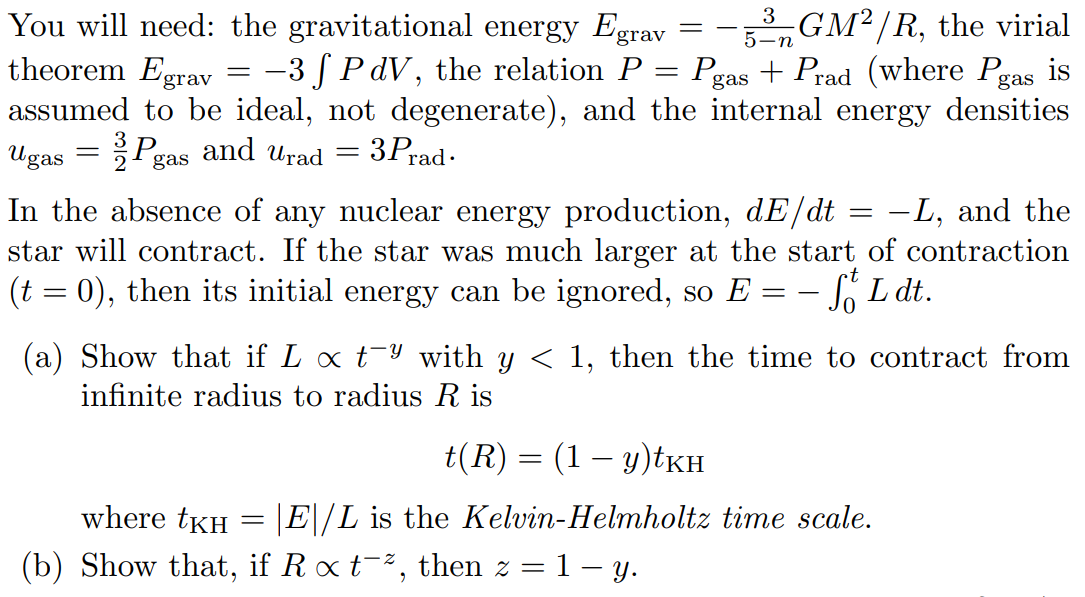Question
You will need: the gravitational energy Egrav theorem Egrav = -3 == PdV, the relation P : = -GM/R, the virial Pgas + Prad

You will need: the gravitational energy Egrav theorem Egrav = -3 == PdV, the relation P : = -GM/R, the virial Pgas + Prad (where Pgas is assumed to be ideal, not degenerate), and the internal energy densities Ugas Pgas and urad == = 3 Prad In the absence of any nuclear energy production, dE/dt = -L, and the star will contract. If the star was much larger at the start of contraction (t = 0), then its initial energy can be ignored, so E = == SL dt. (a) Show that if L ty with y < 1, then the time to contract from infinite radius to radius R is where tH = t(R) = (1 y)tH |E|/L is the Kelvin-Helmholtz time scale. (b) Show that, if R t, then z = 1 y.
Step by Step Solution
There are 3 Steps involved in it
Step: 1

Get Instant Access to Expert-Tailored Solutions
See step-by-step solutions with expert insights and AI powered tools for academic success
Step: 2

Step: 3

Ace Your Homework with AI
Get the answers you need in no time with our AI-driven, step-by-step assistance
Get StartedRecommended Textbook for
Introduction To Probability And Statistics
Authors: William Mendenhall, Robert Beaver, Barbara Beaver
14th Edition
1133103758, 978-1133103752
Students also viewed these Physics questions
Question
Answered: 1 week ago
Question
Answered: 1 week ago
Question
Answered: 1 week ago
Question
Answered: 1 week ago
Question
Answered: 1 week ago
Question
Answered: 1 week ago
Question
Answered: 1 week ago
Question
Answered: 1 week ago
Question
Answered: 1 week ago
Question
Answered: 1 week ago
Question
Answered: 1 week ago
Question
Answered: 1 week ago
Question
Answered: 1 week ago
Question
Answered: 1 week ago
Question
Answered: 1 week ago
Question
Answered: 1 week ago
Question
Answered: 1 week ago
Question
Answered: 1 week ago
Question
Answered: 1 week ago
Question
Answered: 1 week ago
Question
Answered: 1 week ago
View Answer in SolutionInn App



